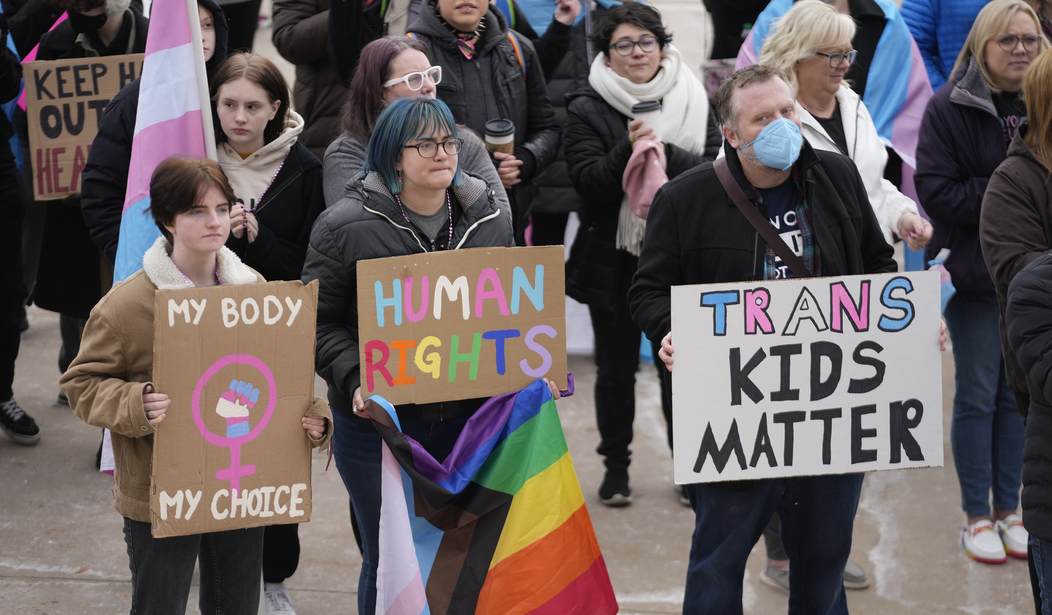Sometimes trans activists underestimate the people they perceive to be their opponents. Despite all the invective and death threats author J.K. Rowling has received from the trans community since speaking out on the issue, for example, it hasn't deterred her. Likewise, activists' efforts to cancel an academic who waded into the forbidden research area of Rapid Onset Gender Dysphoria have completely backfired.
Michael Bailey, a professor of psychology at Northwestern University, has been a researcher for 40 years and has studied a range of controversial topics during that time. Never has one of his more than 100 academic articles been retracted, until June 14, when a paper published three months prior in the Archives of Sexual Behavior was pulled by the Springer Nature Group, the journal's publisher, for what it claimed was a violation of editorial policies. According to Bailey, however, that's not the real reason: "It was retracted because it provided evidence for an idea that activists hate."
The retracted article, “Rapid Onset Gender Dysphoria: Parent Reports on 1655 Possible Cases,” was coauthored with Suzanna Diaz, who I met in 2018 at a small meeting of scientists, journalists, and parents of children they believed had Rapid Onset Gender Dysphoria (ROGD).
ROGD was first described in the literature in 2018 by the physician and researcher Lisa Littman. It is an explanation of the new phenomenon of adolescents, largely girls, with no history of gender dysphoria, suddenly declaring they want to transition to the opposite sex. It has been a highly contentious diagnosis, with some—and I am one—thinking it’s an important avenue for scientific inquiry, and others declaring it’s a false idea advocated by parents unable to accept they have a transgender child.
I believed that ROGD was a promising explanation of the explosion of gender dysphoria among adolescent girls because these young people do not have gender dysphoria as usually understood. Until recently, females treated for gender dysphoria were masculine-presenting girls who had hated being female since early childhood. By contrast, girls with ROGD are often conventionally feminine, but tend to have other social and emotional issues. The theory behind ROGD is that through social contagion from friends, social media, and even school, vulnerable girls are exposed to the idea that their normal adolescent angst is the result of an underlying transgender identity. These girls then suddenly declare that they are transgender. That is the rapid onset. After the declaration, the girls may desire—and receive—drastic medical interventions including mastectomies and testosterone injections. (The Free Press)
It has come to my attention that the retracted version of our article on Rapid onset gender dysphoria (ROGD) is hard to read because of its defacing (Retracted Article on every page) by the publisher Springer Nature. Here’s a link to the original version: https://t.co/pSpaMVammB
— Michael Bailey (@profjmb) July 10, 2023
As author Abigail Shrier has also written about, evidence of ROGD is seen among peer groups in which multiple girls will come out as trans nearly simultaneously. This rise in this occurrence is taking place across the industrialized West, Bailey explained. But so far, research has been practically nonexistent and it's no wonder why—"researchers who have touched this topic have been punished for their curiosity," as he, too, found out firsthand. Littman also lost her "academic affiliation with Brown University" because the school caved to the woke mob.
Though the trans activists may have been successful in getting the paper pulled, their efforts ultimately backfired.
"Our article's retraction has inadvertently resulted in a triumph for truth and reason," Bailey said, pointing to support he's received from other groups as well as the massive amount of publicity he and the topic have gotten as a result.
Recommended
"This episode has guaranteed that I will study ROGD until we understand it," the academic declared, announcing plans he has for a long-term study in collaboration with Littman and another researcher, Ken Zucker, who's hated by activists because "he believes that gender dysphoria is a problem that should be treated, if possible, with psychotherapy to prevent transition rather than drugs and surgery to facilitate transition."
"Censors have tried to stop scientific progress before," Bailey concluded. "Now, as then, the pursuit of truth requires scientists and researchers who refuse to cow to puritans, ideologues and activists."

























